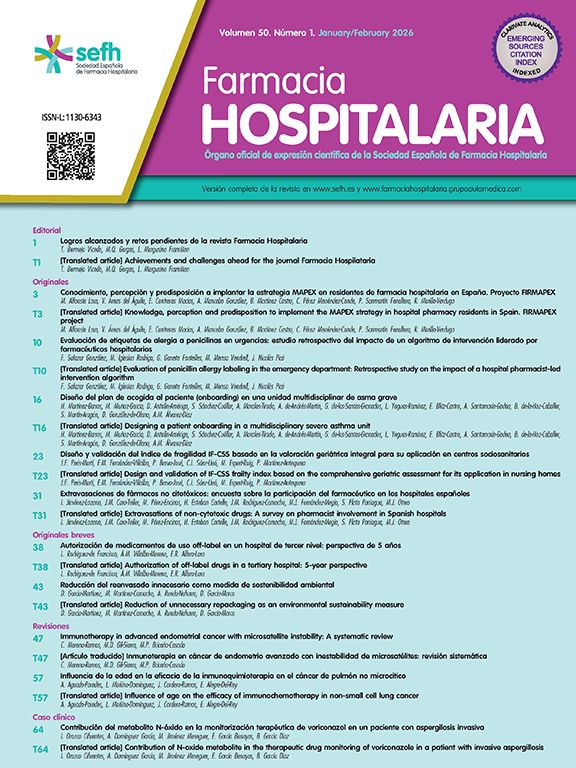
On the date I am writing this editorial, while regions of Spain are still on total lockdown, others have advanced to more lenient stages. In any case, I remember my life before the pandemic with a feeling of disbelief, the same feeling that guided me during the structured routine in which the COVID-19 pandemic forced us to live. Sometimes, I cannot figure out what was more unreal, whether the life before the pandemic or what we have lived in the past months.
Now, our old movements strike me as excessive, baroque and even superfluous. As our frenetic days passed by, we did not get to realize why the activities we were so committed to were so essential and necessary. And while we were engaged in something that seemed indispensable, without advance notice, all of a sudden, everything stopped. As it occurs when someone is given a diagnosis, what seemed urgent disappeared; tense conversations muted, outstanding debts were forgotten, scheduled dates never called again.
In the midst of uncertainty, hospital pharmacies have responded with the conviction that it was essential to supply doubtful or not-proven treatments, search for scarce critical medications, act fast to prevent irreversible errors, find ways to provide care in unofficial locations: beds in hotels, sports centers, libraries … arrange home care to provide emotional and therapeutic support to relief patients’ anxiety.
As a scientific society, we were committed to resolve doubts, select relevant information from the overwhelming amounts of data generated everyday, facilitate the reading and understanding of publications, and update information regularly. We also channeled funds to meet the needs of hospital pharmacies and improve the safety of professionals and patients, and made an effort to narrow knowledge gaps with the most accurate data that were available.
We are now in a crucial transition to normality, but we are not longer the same. Maybe we no longer idealize normality as all we possessed or the world we belonged to. Maybe we all secretly dream of changing reality. Deep inside, we feel that we cannot return to the old normality. Everything has changed so much. We are no longer the same, and what we remember is not longer useful for the future.
Communication during the pandemic has become an essential part of our life. Facts ousted opinions, and we value data more than ever. Trust on the media and the perception of communication as an essential good envisages a more active role of the media in the society of the future and in pharmacy services.
Online education and training have gained protagonism and a justification will be needed to provide it otherwise. The added value of faceto-face interaction will have to be demonstrated. Online training and education avoids physical presence. This will require new teaching abilities, including concision, brevity, and accuracy. Oratory will be replaced with figures, and the time granted to us to speak will shrink. It will be necessary to define new teaching skills.
The structure of teams will change. Flexible hours, balance of work and family life to be able to care for children and the elderly or just have a life have already been put on the table. In the absence of enough human or material resources, responsiveness will be guaranteed by the versatility of work teams. Conflicts have decreased in this more static, intimate world. Healthcare professionals have faced the challenge of changing their specialty and schedules to work in other areas, other hospitals, and other patients. Teams have been mixed up, offices have been shared with new colleagues, and solidarity is not longer optional. Contingency plans, generosity in action and space, and cooperation inside and outside hospital pharmacies are required.
Visits have been cancelled and will be held differently in the future. A new form of personal interaction is required to facilitate scientific online consultations. Online activity will deprive professionals and patients from physical closeness, but will provide more time and quality of care, which fits better user's needs instead of health professional's need.
The relationship of patients has extended to their homes and we all have experienced how professionals can meet, evaluate and communicate with their patients at a distance. An explanation will be needed to justify delays and visits to the hospital, and their added value will have to be demonstrated. Communication will no longer be unidirectional, but bidirectional as patients demand and not as professionals prefer. New, larger, safer spaces have been opened for patients. Wait times will be reduced and patients will no longer wander around. Digital literacy has become a keystone for professionals and patients. Users control time and stay.
The integration of clinical teams has become more urgent and necessary than ever, making teams more determined and accurate. This is not the time to get away and draw back to our territory, but to keep the momentum going, transmit mutual commitment and co-responsibility in decision making. It is transgressive and generous teams that achieved control, which had not been possible without their altruism and anonymous cooperation.
The changes faced require more than ever rapid reaction and resistance, before we get swept away by the thrust to return to the past. Oblivion will not mean the defeat of the pandemic, but a failure. We don't want to forget.






